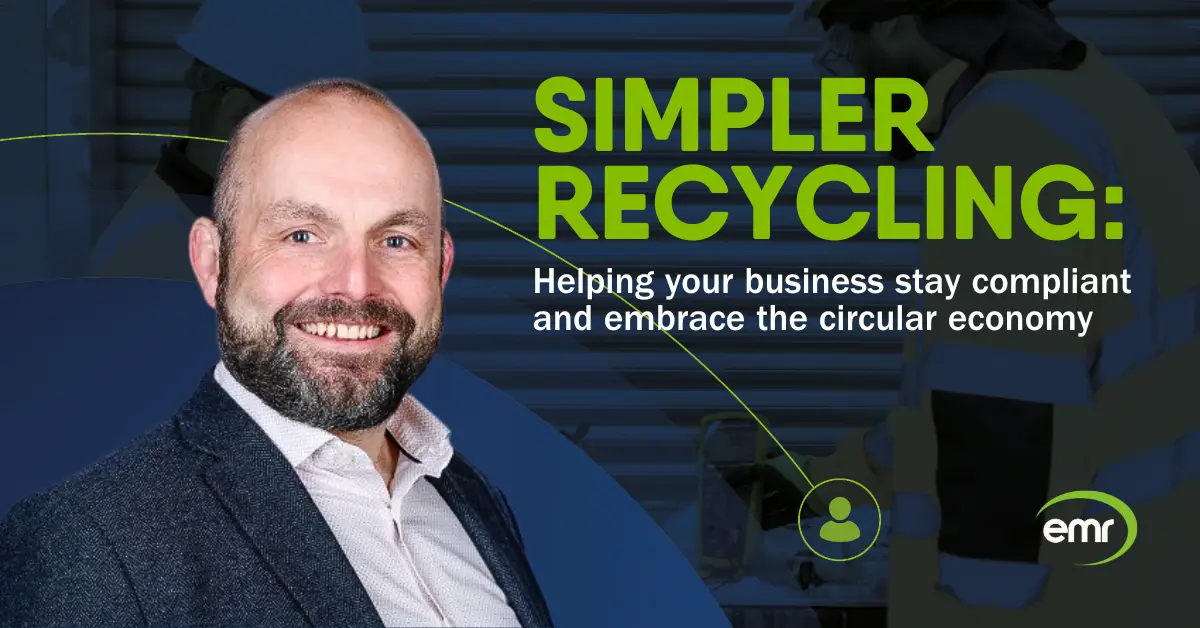CHOOSE
A DIFFERENT TERRITORY

The arrival of Simpler Recycling regulations offers businesses large and small an opportunity to reduce waste collection costs, improve recycling rates and support the circular economy. By making small but important changes to the way they separate and dispose of the recyclable waste they present for collection from their premises, every business can play its part in a more resilient future.
Listen to this article
From April 2025, businesses with more than 10 full-time employees are now legally required to separate dry recyclable materials (including paper, cardboard, glass and metal) as well as food waste from their general waste.
This change is expected to significantly improve both the quantity and quality of material presented for recycling, accelerating the UK’s ambitious goal of recycling 65% of municipal waste by 2035. By March 2026, similar requirements will apply to households too.
The legislation encourages waste separation at source, avoiding contamination that can lower the value and recyclability of materials – especially when food waste is mixed in. High-quality recycling starts with you, and a simple rule of thumb can help: will this item reduce the recyclability of everything else in the bin?
If the answer is yes – especially for food, soiled packaging, or glass – it's best to separate it. Clean, well-sorted materials are far more valuable and easier to process. After all, in the circular economy, someone else will be using the materials you send for recycling. Would you want to buy dirty, mixed waste materials – or would you prefer clean, sorted materials?
While exact collection methods may vary, dependent on your collection service, most businesses will need to separate their waste materials into different bins:
Packaging covered in food, while not explicitly covered by the legislation, should be cleaned before disposal to avoid contamination and support higher-quality recycling outputs.
By improving waste segregation, businesses not only contribute to environmental targets, but they can also lower disposal costs by reducing the amount of general waste sent to landfill or incineration.
Confused? EMR can help.
At EMR, we understand that change can raise questions and that adapting to new waste regulations takes time. With more than 60 sites across the UK and decades of experience, we’re here to make the transition as smooth as possible.
Our team can conduct a business recycling audit to help you:
Reach out to EMR’s friendly team today to arrange a visit. We’ll help you simplify your recycling, meet compliance and improve your approach to the circular economy.
Connect with Al on LinkedIn for the latest on Simpler Recycling.